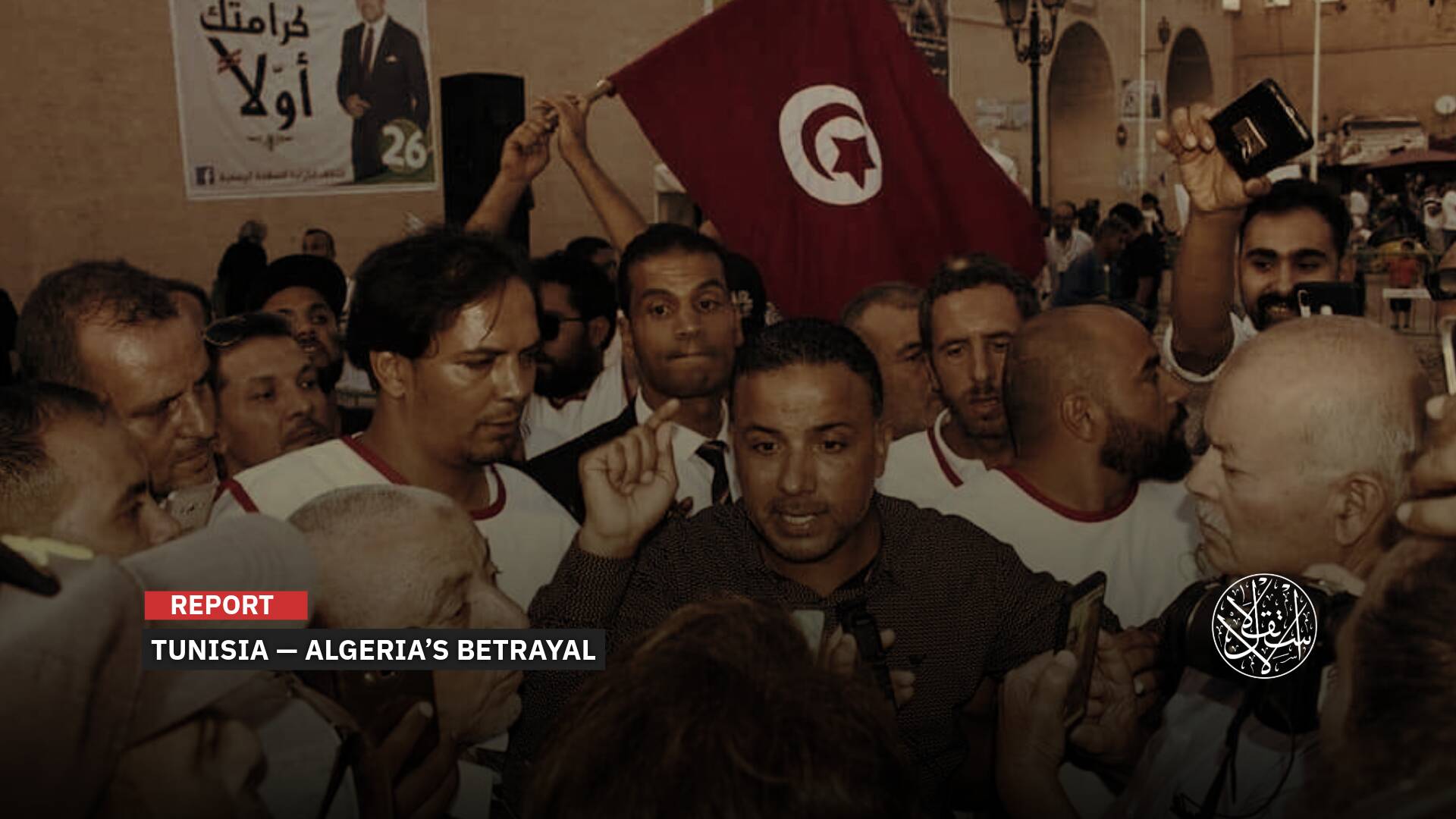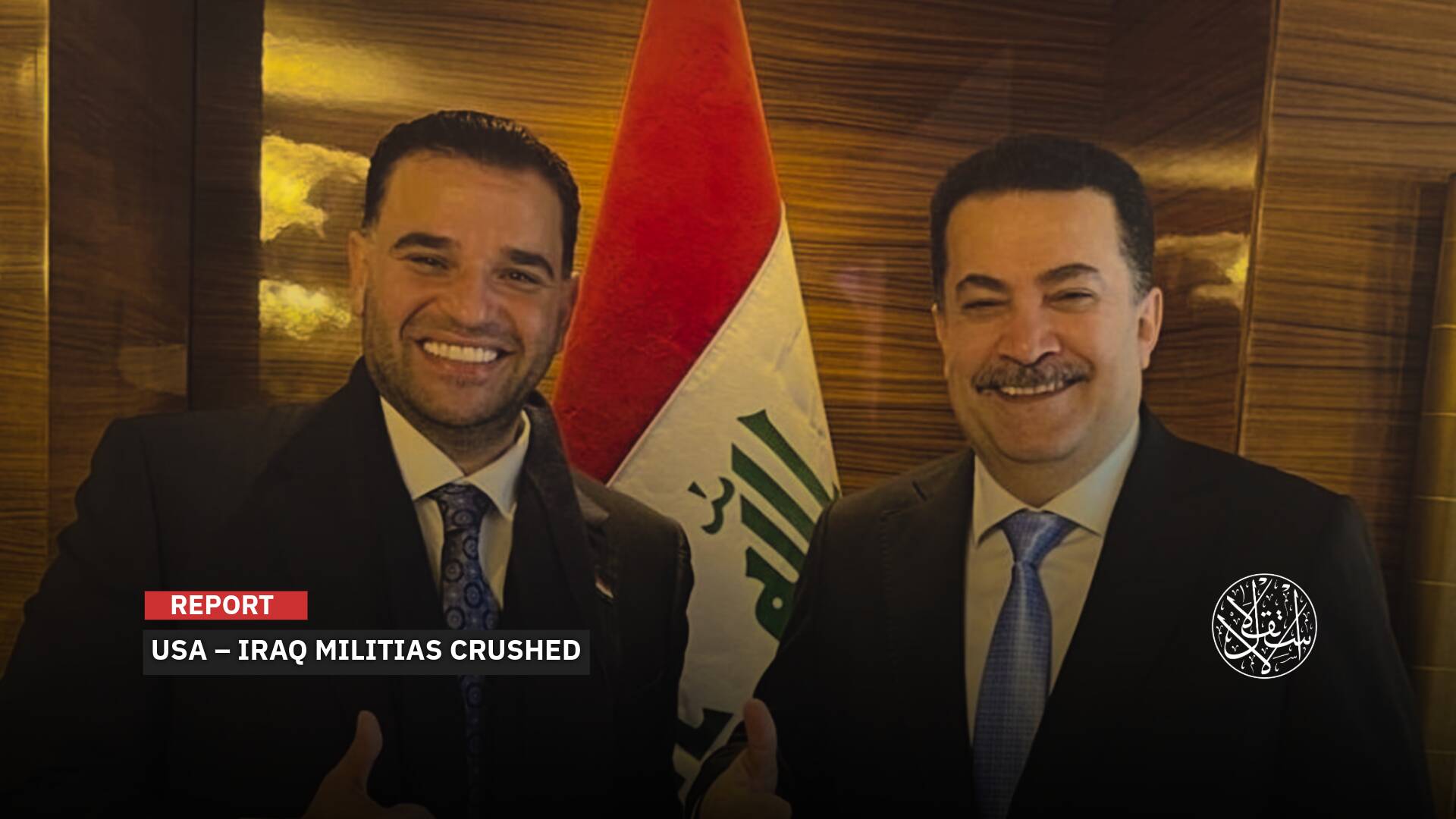Amid Internal Turkish Controversy: Is the PKK’s Armed Struggle Truly Over?

“Ankara viewed the decision as one that encompassed Kurdish militants in northern Iraq, Syria, and Europe as well.”
Following weeks of tumultuous political deliberations in Turkiye, the Kurdistan Workers' Party (PKK) officially announced its dissolution, ending its more than four-decade-long armed conflict with the Turkish state, with 40,000 people killed, and without securing a Kurdish homeland.
This announcement comes from efforts led by Turkish President Recep Tayyip Erdogan and his ally, the leader of the Nationalist Movement, Devlet Bahceli, to end the conflict, as part of Ankara's efforts to achieve the goal of a terror-free Turkiye.
While Erdogan considered the PKK's decision to include its members in Turkiye, Iraq, Syria, and Europe, controversy and debate have escalated within Turkiye about the next steps, how the process will be managed, the role of the Turkish parliament, and the legislation required to guarantee Kurds' rights on an equal footing with Turks.
The shift from arms to politics will not be merely a regulatory measure; it will require a supportive legal environment and reforms within Turkiye that guarantee the cultural and political rights of Kurds, preventing a resurgence of violence.
On the other hand, Kurdish observers are not very optimistic about the current rapid developments, as most of them tend to be cautious about future steps, which could unravel everything and make things worse.
Others believe this decision will have far-reaching political and security repercussions for the region, including Iraq and Syria, where Kurdish forces are allied with US forces.
Kurdish Struggle
The Kurdistan Workers' Party (PKK) held an extraordinary congress in the Qandil Mountains of northern Iraq between May 5 and 7, where it is primarily based.
According to sources close to the PKK, the congress concluded with a final statement published on May 12, in which the party declared that it had completed its historic mission.
This development comes in response to a call by imprisoned PKK leader Abdullah Ocalan, who had called on February 28 for the dissolution of the party and the end of the armed struggle.
“The PKK 12th Congress decided to dissolve the party's organizational structure, with Leader Ocalan assuming the leadership and implementation of the process, and to end the armed struggle,” the statement said.
“PKK's struggle broke the policy of denying and annihilating our people and brought the Kurdish issue to a stage that can be resolved through democratic politics,” it added.
The statement considered the Treaty of Lausanne and the 1924 Constitution, which denied the existence of the Kurdish people, to be the root of the Kurdish issue in Turkiye.
A PKK official confirmed the decision and said all military operations would cease immediately, adding weapon handovers were contingent on Ankara's response and approach to Kurdish rights, and the fate of PKK fighters and leaders.
Reports stated that the PKK’s disarmament process is expected to take three to four months, with weapons being collected at designated locations in northern Iraq under official supervision.
A leader in the pro-Kurdish Peoples' Equality and Democracy Party (DEM)—the third largest political party in Turkiye's parliament—said, “The decision is important for the Kurdish people and the Middle East, and will require a major shift in the Turkish state's mentality.”
Following the PKK's announcement of its dissolution, the DEM Party's Central Executive Committee held a meeting to discuss the next steps in the process.
DEM Party Co-Chair Tuncer Bakirhan said, “We hope the decision will be beneficial for Turkiye. There is no longer any reason not to build a democratic Turkiye. I hope we will culminate this process in peace.”
DEM Party spokeswoman Aysegul Dogan also called for participation in the democratic process, noting that a new era in the political process has begun.
No concessions were revealed regarding the PKK's dissolution, amid questions about the political rights that Turkiye's Kurds, who constitute nearly a fifth of Turkiye's 86 million population, might gain.
In a related development, the DEM Party called for the recognition of Kurdish identity and culture in the country's constitution, the teaching of the Kurdish language in schools, and the devolution of powers to local authorities in the predominantly Kurdish southeast of Turkiye.

Turning Point
The PKK's move was welcomed by Ankara, particularly since, if the peace process succeeds, it could strengthen domestic political support for Turkish President Erdogan as he seeks to extend his rule.
It could also provide Erdogan with an opportunity to promote development in southeastern Turkiye, where security tensions have hampered economic stability for decades.
Foreign Minister Hakan Fidan said the PKK decision was of historic importance and could bring lasting peace and stability for all peoples of the region.
AKP spokesman Omer Celik said that the PKK's decision to dissolve itself and lay down its weapons is an important step and a decisive turning point toward achieving the goal of a terror-free Turkiye.
He stressed the need for concrete implementation of the resolution in all its dimensions, both domestically and internationally, as it will have an impact in deterring imperialist schemes that use terrorist organizations in proxy wars.
The Turkish President's Director of Communications, Fahrettin Altun, stated that the process will not be short-term or superficial, and that all steps will be taken transparently and with sensitivity in mind.
“Now that the PKK has said it will disband and disarm, a new phase in the process will begin, including the drafting of a new constitution,” said Mehmet Ucum, an advisor to President Erdogan.
The past few years have witnessed intermittent attempts to achieve peace between the PKK and Ankara, most notably the ceasefires between the two sides in 2013 and 2015, before they collapsed due to deepening political and security differences.

Political Objections
The PKK's recent decision sparked widespread controversy in Turkiye, particularly regarding the party's reference in its statement to the Treaty of Lausanne and the Kurdish genocide.
The opposition expressed concern that Erdogan might exploit the entire process to pave the way for himself to run in the 2028 presidential elections and remain president of Turkiye for a third term.
At the same time, the reaction from Turkish nationalists appeared violent. The Good Party (İYİ) considered the ongoing process between the PKK and the Turkish government to be treason, warning of a plot to divide Turkiye.
On his part, the Good Party Chairman Musavat Dervisoglu noted that what we understand from the PKK's statement is a declaration of victory, and that the party has not retreated from its goals and objectives.
He emphasized that the Treaty of Lausanne is the property of the Turkish Republic.
“We must be vigilant and pay attention to developments in northern Syria in particular. We are asking the government for its opinion on the Kurdish Autonomous Administration conference in Qamishli and its commitment to federalism and self-rule,” he added.
In turn, Republican People's Party (CHP) Chairman Ozgur Ozel emphasized that Parliament must be the place where solutions to all the country's problems, including the Kurdish problem, are produced through the rule of law, justice, and democracy.
He emphasized that the guarantee of social peace in Turkiye is the Turkish Republic, founded by Mustafa Kemal Ataturk over 100 years ago, which is based on the will of the people, national sovereignty, the independence enshrined in the Treaty of Lausanne, and the indivisible national unity.
Ankara Mayor Mansur Yavas highlighted both support for a terror-free Turkiye and concerns about state integrity and public sentiment.
“If legal changes are required, then a referendum should be held so that the people can decide,” he added.
He referenced the Treaty of Lausanne, calling it the foundational document of Turkiye’s national unity, and emphasized that its status must never be up for debate.
The PKK's statement regarding the Treaty of Lausanne and the Kurdish genocide also sparked objections from within the Justice and Development Party (AKP).
Prominent Turkish writer Murat Yetkin said that “everyone must realize that the PKK's legal and constitutional demands, which go as far as changing the first four main articles of the Turkish Constitution, will lead to serious reactions in society.”
Veteran writer Taha Akyol said he was deeply concerned that the Kurdish political movement would gain momentum, and that Ocalan would be presented to the world public as the man who made them lay down their arms, rather than as a convicted terrorist.
“If the goal of this disarmament is to eliminate the factors that worry our Kurdish citizens within Turkiye's borders and to live together in a democratic society, that is very good,” he added.
“However, if this is viewed as a temporary phase, and the idea of Kurdish nationalism is transformed into politics, it will not serve stability in Turkiye or the Middle East,” Akyol said.

Deep Repercussions
Although the final statement of the 12th PKK Congress did not refer to Syria or Iraq, its announcement of an end to the armed struggle—if translated into practical steps—could have deep repercussions for both countries, which have witnessed Turkish military operations against the PKK and its military extensions in recent years.
In Syria, Ankara considers the Syrian Democratic Forces (SDF), allied with the international coalition and whose military backbone is the Kurdish People's Protection Units (YPG), an extension of the PKK.
The SDF had previously declared that Ocalan's call to dissolve the PKK and lay down its arms did not concern it.
However, on March 10, it signed an agreement with the Syrian administration, headed by Ahmed al-Sharaa, to integrate the group into Syrian state institutions in exchange for recognition of Kurdish cultural rights.
The President of the Kurdistan Region of Iraq, Nechirvan Barzani, welcomed the event, considering it a crucial step that opens a new page in the region and paves the way for a genuine dialogue that will enhance coexistence and stability in Turkiye and the region.
In Iran, an organization close to the PKK, known as the Kurdistan Free Life Party (PJAK), is active. The fate of this organization remains unclear and may be one of the most complex issues in the coming period.

On his part, security expert Omar Hamada told Al-Estiklal that “there is an international trend in the Middle East toward disarming armed organizations and formations outside the control of states.”
Regarding the fate of PKK militants, he expected Ankara to pardon those without terrorist records, and that these would return in a manner determined by Turkiye at a later date, adding that others involved in major attacks may be deported to a third country, such as Norway or South Africa.
However, Mr. Hamada noted that the PKK's declaration is liable to collapse if any of the understandings on the basis of which the decision to dissolve the party and end armed activity were violated, including allowing party cadres to engage in political activity in Turkiye.











